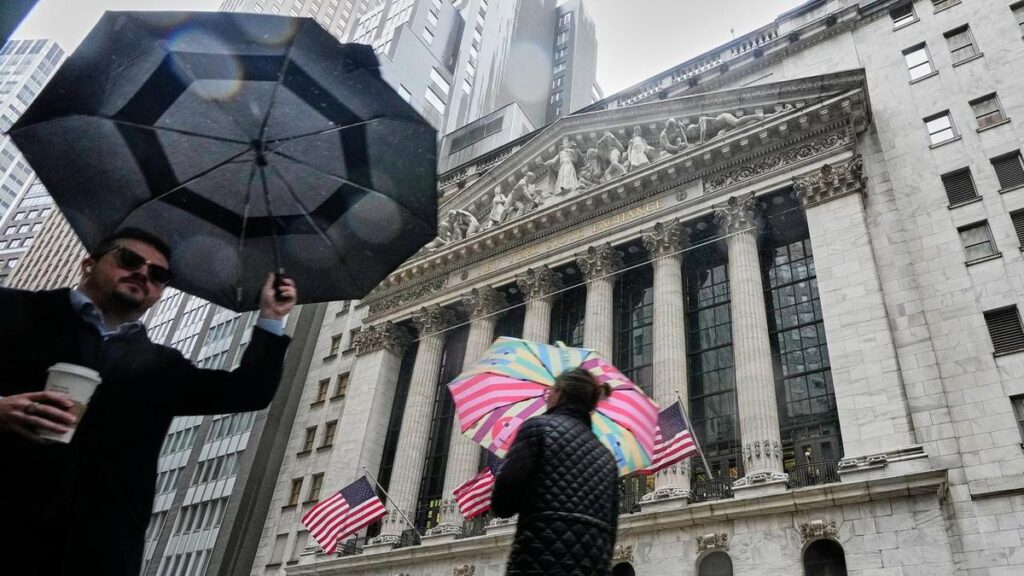
UPDATE: Wall Street’s main indexes are in freefall, with the tech-heavy Nasdaq plunging nearly 2.0 percent on October 26, 2023, as fears over the economy and inflated technology valuations grip investors. This marks the second consecutive session of losses, setting the stage for significant weekly declines across major indexes.
The Nasdaq is on track for its worst weekly performance since March, while the S&P 500 and Dow are both poised for their steepest losses in four weeks. As trading opened on October 27, the Dow Jones Industrial Average dropped 138.50 points or 0.30 percent to 46,773.80, the S&P 500 fell 46.63 points or 0.69 percent to 6,673.69, and the Nasdaq Composite dropped 278.31 points or 1.21 percent to 22,775.68.
Market sentiment has soured sharply as executives warn that a correction may be imminent. “There is a continuation of the concern of a possible pullback… it’s traditional early November weakness triggered by elevated valuations,” stated Sam Stovall, chief investment strategist at CFRA Research.
Despite reaching all-time highs earlier this year, optimism surrounding artificial intelligence has diminished. Investors are increasingly worried about the monetization of technology and reduced spending within the sector. Shares of major tech firms like Nvidia and Broadcom fell 2.8 percent and 2.2 percent, respectively, contributing to a broader downturn in the information technology sector.
Furthermore, the CBOE Volatility Index, often referred to as Wall Street’s fear gauge, surged to its highest level in over two weeks, reflecting heightened anxiety among investors.
In a notable development, Tesla shareholders approved the largest corporate pay package in history for CEO Elon Musk. However, the company’s shares fell 3.3 percent, mirroring the overall market sentiment and impacting the consumer discretionary sector.
On the earnings front, new data shows that 83 percent of 424 companies in the S&P 500 that reported results have exceeded Wall Street expectations, the highest rate since the second quarter of 2021. Expedia surged 16 percent after raising its full-year revenue growth forecast and posting third-quarter profits that surpassed predictions.
The ongoing U.S. government shutdown has compounded economic uncertainty, creating an information gap that has left Federal Reserve policymakers divided on future monetary policy. According to White House economic adviser Kevin Hassett, the economic fallout from the shutdown is proving to be worse than anticipated. “The question is, will it exacerbate an economic slowdown within the U.S.? There is a lot of uncertainty,” he said in an interview.
Recent data from the University of Michigan reveals a preliminary Consumer Sentiment Index reading of 50.3 for October, significantly lower than the expected 53.2. Investors and consumers alike are feeling the strain, as the landscape grows increasingly unpredictable.
As the trading day progresses, significant market fluctuations are anticipated. Noteworthy declines include Block, which slumped 10.5 percent after missing profit expectations, and Take-Two Interactive, down 6.6 percent following the delay of its highly anticipated video game, GTA VI, to November 2026.
With declining issues outnumbering advancers on both the NYSE and Nasdaq, the market remains under pressure. The S&P 500 recorded 8 new 52-week highs and 10 new lows, while the Nasdaq Composite saw 18 new highs and a staggering 211 new lows.
As these developments unfold, investors are advised to stay alert to further market movements and economic indicators. The situation continues to evolve rapidly, and the implications for both the economy and individual portfolios are significant.





